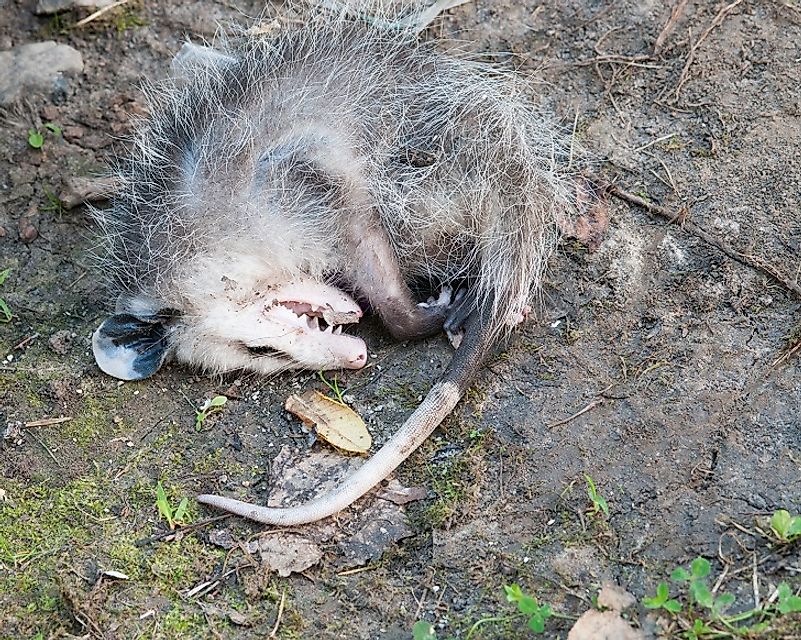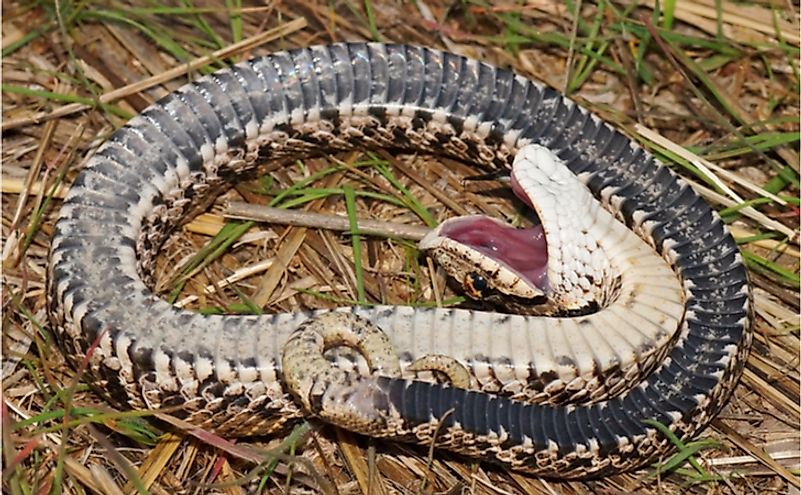Why Do Animals Play Dead?

5. Animals Known To Play Dead
The natural world has always baffled humans with its varied wonders. Every species on Earth possesses its unique traits, behaviors, and defense mechanisms. One of the most interesting aspects of such animal behavior is the ability to play dead or appear dead under special circumstances. The term of playing or appearing dead is also known as “thanatosis” and appears to serve various purposes in different species. While most species feign death to escape the predators, some also adapt this behavior for capturing prey while others even utilize thanatosis as part of their courtship ritual to come close to their mate. Whatever be the reason, the ability to play dead is a unique and interesting adaptive behavior that continues to teach us an important lesson in species survival.
4. As A Self-Defense Mechanism

Most commonly animals fake death to escape their predator. For example, the opossum, the only marsupial species found in North America, when confronted by a predator or any other threat, start faking death, going into a comatose like state with apparently no movement and emanation of a foul odor from the body. Hog-nose snakes also play dead when threatened by a predator. Several species of frogs also use thanatosis as a mechanism of defense. Predators usually avoid preying on such dead prey in suspicion that the prey is diseased and hence dead.
3. Use In Courtship Rituals
Feigning death to avoid being eaten might not appear too surprising, but a species of spider known as the male nursery web spider fakes death for a completely different reason. During the courtship ritual, the male spider presents the female with a dead insect wrapped in silk. However, it often happens that the large female accepts the gift or steals it away from the male and leaves without mating with the male. To avoid such circumstances and to take a better chance with the female, the male spider fakes death, hanging on to the dead insect. As the female leaves with the insect, she is oblivious to the fact that the male is right behind her. When the female starts feeding, the male again comes to life and takes a second chance at mating with the surprised female.
2. A Means to Attract Prey
Just like the prey feigns death to save itself from the predator, nature also hosts predators that fake death to attract prey species to them. One notable example is the Livingston’s cichlid, one of the two species of cichlid fish that play dead to draw prey. These fish, inhabiting the waters of Lake Malawi in Africa, are often be observed sinking to the lake depths, apparently appearing dead with their blotchy coloration, bearing a close resemblance to a rotten carcass. Attracted by what appears to be a carcass, lake scavengers swim to the site to feed on it. Grabbing the opportunity, the fish takes its prey by shock and feeds on it.
1. Role of Scent, Physical Appearance, and Other Factors
Animals fake death by several different mechanisms. A modification in physical appearance and movements is the most common way to appear dead. The animals become motionless for brief periods and often lie in unusual positions like lying on their backs or sides to appear dead. Leaf litter frogs adopt such mechanisms like turning the belly-up and closing their eyes, looking dead. Another interesting mechanism of thwarting predators is used by fire-bellied frogs of Asia and Europe. Besides appearing motionless, these frogs produce striking yellow to orange colors on their undersides, which acts as a warning to predators who now consider the frogs to be both dead and toxic. Smell can also be harnessed to fool predators. The American opossum and the southern hog-nose snake, besides faking death, also emanate unpleasant odors which discourage their predators from attacking them.











